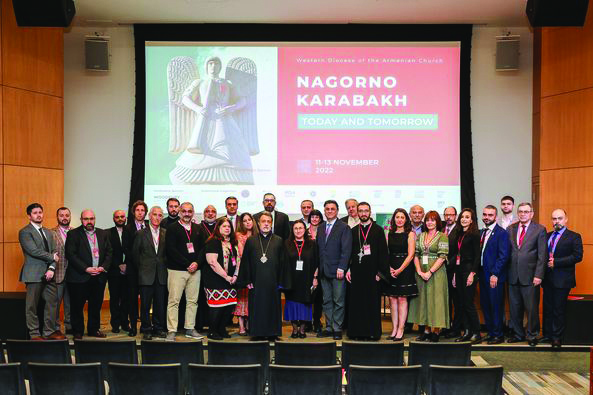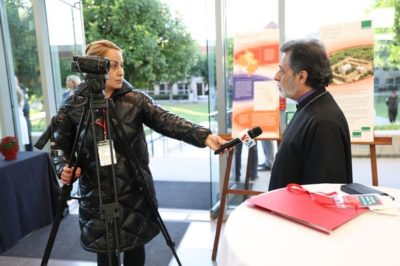LOS ANGELES — The Artsakh Heritage Committee of the Western Diocese of the Armenian Apostolic Church of North America held an international conference on human and cultural security prospects for Artsakh/Nagorno-Karabakh in Los Angeles on November 11-13, 2022 that featured top experts from across the world to discuss cultural preservation, geopolitics, diplomacy, and legal matters concerning Armenian existence.
“We thank the esteemed experts that travelled from across the USA, Armenia, Austria, Bolivia, Georgia, and the United Kingdom for the ‘Nagorno-Karabakh: Today and Tomorrow’ conference to discuss the present and future of Artsakh’s religious heritage and living culture,” remarked Archbishop Hovnan Derderian, the Diocesan Primate. “We are also grateful to the many individuals and institutions, particularly conference host Woodbury University and Armenian Studies centers from various universities, for making this gathering possible,” said the archbishop.
“The aftermath of the 2020 Nagorno-Karabakh war has left Armenian communities, including in the Diaspora, feeling confused, helpless, and hopeless,” remarked conference chair Simon Maghakyan. “This is why we brought together expert practitioners and stakeholders in a Chatham House-like intimate environment to understand what can be done to ensure sustainable human and cultural security for Artsakh,” continued Maghakyan, who is a Denver-based investigative researcher and cultural heritage defender.

The Conference Report that summarized conference discussions and findings was recorded for public dissemination.
It can be viewed on https://www.youtube.com/watch?v=mm4p3rTMR2E
A communiqué, summarizing recommendations and next steps, was adopted by conference participants. The text of the communication is presented below.










